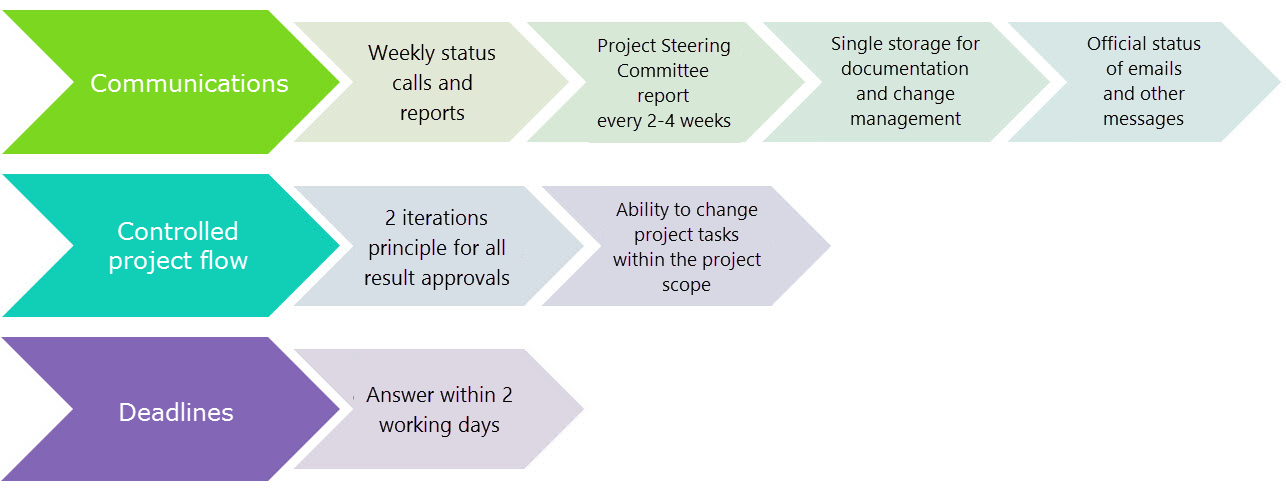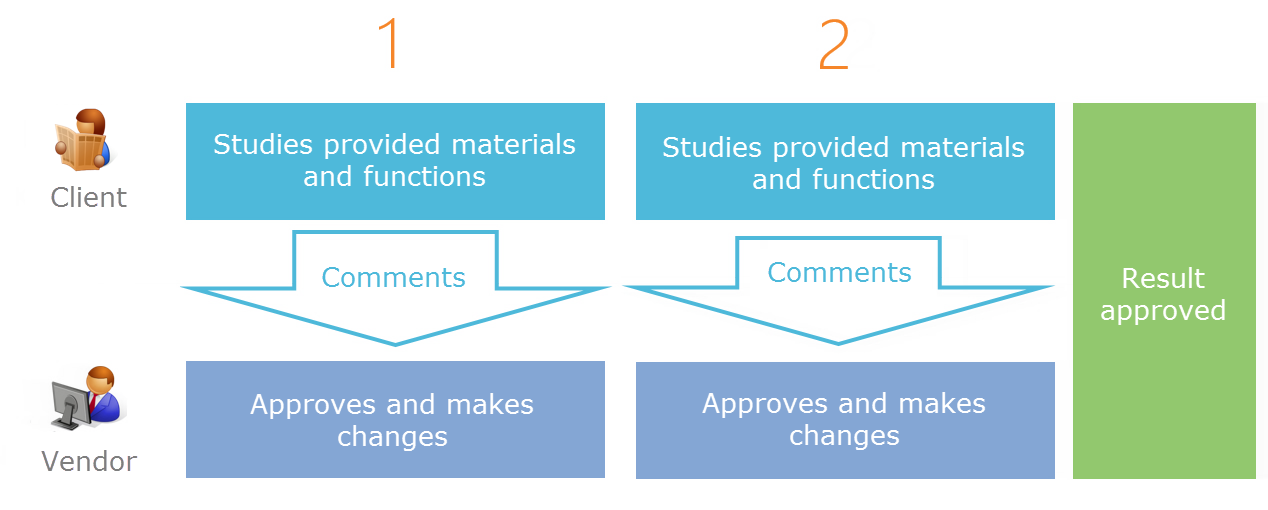Regulations are a set of agreed upon rules for interaction within the project. Compliance with project regulations ensures that the project team members interact with each other efficiently and that all project deadlines are met. It is recommended that the Client and the Vendor agree upon the project regulations beforehand. There is a set of recommended regulations (Fig. 4).

Communication guidelines
Please follow these guidelines when conducting communications within the project:
•Make status calls and provide reports on a weekly basis. Make sure that you regularly inform the Client about the project task status, current problems and planned solutions. This ensures the Client’s awareness of the project’s current status and that the receipt of timely feedback by the project team.
•Every 2-4 weeks provide reports with critical project information to the project Steering Committee. For example, the reports must contain information about phase transitions, current problems and disagreements, significant changes in the project tasks.
•Use single documentation repository. Manage projects with a single resource, such as your customer portal or a cloud-based document storage that is available to all project participants. This will let the project team members obtain the most relevant and up-to-date information about the status of the project, the Client can use this to create project requests that are transparent to all parties.
•It is recommended to stipulate that all communications through the agreed upon medium (emails, messengers, applications such as Asana, etc.) are considered official documentation. This will reduce the amount of paperwork.
Project flow management guidelines
Use the following rules to manage the project flow:
•The two iterations approach: approve all results with the Client using no more than two iterations. An iteration includes studying the provided materials or functions by the Client, commenting on them and approving the proposed changes (Fig. 5). It is important to make it clear to the Client that this rule is critical for quality approval of changes, preserving project manageability and keeping up with the deadlines.

•Ability to change the set of project tasks. Keep in mind that during the project flow the project initial tasks may change, new tasks may appear. The composition of work, time and resources allocated for the implementation of the project may also change.
Deadline guidelines
Use the rule according to which both project teams (Vendor and Customer) oblige to provide a reply to a general information or project inquiry within 2 working days. This is important at all project stages because it lets the Vendor receive up-to-date information needed to research development tasks and adjust priorities. The Client on the other hand will always stay up-to-date with the current status of the project. If the reply cannot be provided in time, the responsible team shall notify the other party about the delay. It is worth noting, however, that such delays may affect project deadlines.
See also
See also






